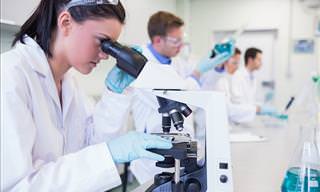Although drinking alcohol may be enjoyable at the time, it can result in a painful and debilitating hangover the following morning. Fortunately, scientists have made progress in developing a solution to protect people from the headaches and nausea associated with excessive drinking. Researchers in China have successfully genetically engineered a probiotic that reduces alcohol's harmful effects and enables faster recovery after a night of drinking.

In animal experiments, the probiotic not only accelerated alcohol metabolism but also shielded the liver from alcohol-related damage. If these outcomes are confirmed in human trials, consuming a specialized probiotic before taking alcohol could eliminate the need for hangover remedies. Excessive alcohol consumption has been linked to various health issues, including immune deficiency, heart disease, and cirrhosis.
Meng Dong, Ph.D., from the Chinese Academy of Science's Institute of Zoology, stated in a press statement, "We believe that genetically engineered probiotics will provide new ideas for the treatment of liver diseases."
Related: 12 Head-Pounding Facts About Hangovers!
What sets this probiotic apart?
Alcohol dehydrogenase (ADH) is the enzyme primarily used by the human body to break down alcohol, but some variants of the enzyme are more effective than others. Research has shown that ADH1B is hundred times more active than other forms of the enzyme and is more prevalent in East Asian and Polynesian populations.
While scientists have previously utilized genetic engineering to express ADH1B in mice, the method is not safe for human consumption. To address this concern, Dong's team looked to Lactococcus lactis, a bacterium commonly found in fermentation, to create the probiotic.
Using molecular cloning, the team introduced a gene that produces ADH1B into a bacterial plasmid, which was then added to a strain of Lactococcus lactis. The probiotic successfully secreted the alcohol-metabolizing enzyme.
After encapsulating the probiotic in a casing designed to withstand stomach acid, researchers tested it on three groups of mice consuming different amounts of alcohol. Mice that weren't treated displayed signs of intoxication within 20 minutes and struggled to get back on their feet, while mice that received the probiotic were able to metabolize the alcohol faster.
When administered with the ADH1B-expressing probiotic, 50% of the mice managed to regain their balance within an hour after consuming alcohol. Meanwhile, 25% of the subjects were able to maintain their capability to flip themselves over while under the influence of the probiotic.
Additional tests revealed that the untreated group experienced an increase in blood alcohol levels even after two hours of drinking. In contrast, the probiotic group's alcohol levels began to decrease at this point.
The scientists also observed that the mice who took the probiotic had lower levels of lipids and triglycerides in their livers, suggesting that the treatment may offer protection against alcohol-related liver damage such as inflammation and fatty liver disease.
The team hopes that their study will lead to the development of specialized probiotics that can be taken before drinking, reducing the harmful effects of alcohol on the body. Dong, the lead researcher, expressed enthusiasm about the potential of recombinant probiotics in treating acute alcohol-induced liver and intestinal damage.
Excessive drinking has been linked to various health problems, including heart disease, cirrhosis, and immune deficiency, making it crucial to find ways to reduce its negative impact on the body. The potential benefits of this new probiotic are exciting, as it could change the way we approach drinking and help reduce the negative consequences of alcohol consumption.
The study's findings have been published in the Microbiology Spectrum journal.
The best home remedies for a hangover

Although the news regarding the new probiotic is promising, it is important to note that extensive research is required before we can determine if it is suitable for human consumption. Nevertheless, there are a number of home remedies that can provide relief for symptoms and expedite the recovery process. Below are some of the most efficient home remedies for hangovers:
1. Drink plenty of water: Drinking alcohol can leave you dehydrated, so replenishing your fluids is key. Sip water throughout the day to flush out toxins and rehydrate your body.
2. Eat a hearty breakfast: Eating a nutritious breakfast can stabilize your blood sugar levels and provide your body with much-needed nutrients. Consider foods like eggs, avocados, and whole grains.
3. Take a nap: Rest is important for your body to recover from a night of heavy drinking. Take a nap or relax for a few hours to give your body time to recuperate.
4. Try ginger: Ginger has anti-inflammatory properties that relieve nausea and stomach discomfort. Consider sipping ginger tea or chewing on candied ginger.
5. Get moving: Exercise stimulates blood flow and releases endorphins, which can improve your mood and alleviate symptoms of a hangover.
6. Drink a sports drink: Sports drinks contain electrolytes that replenish your body's fluids and minerals lost through drinking.
7. Avoid caffeine: While coffee may seem like a quick fix for fatigue, caffeine can further dehydrate you and exacerbate symptoms.
Related: 16 Foods to Get Rid of Hangovers and Flu
These are just a few of the best home remedies for a hangover. Remember, the most effective way to avoid a hangover is to drink in moderation and stay hydrated.
 Go to BabaMail
Go to BabaMail

























